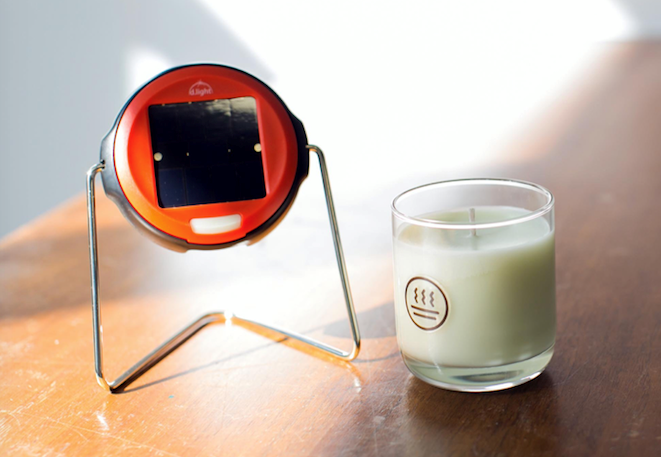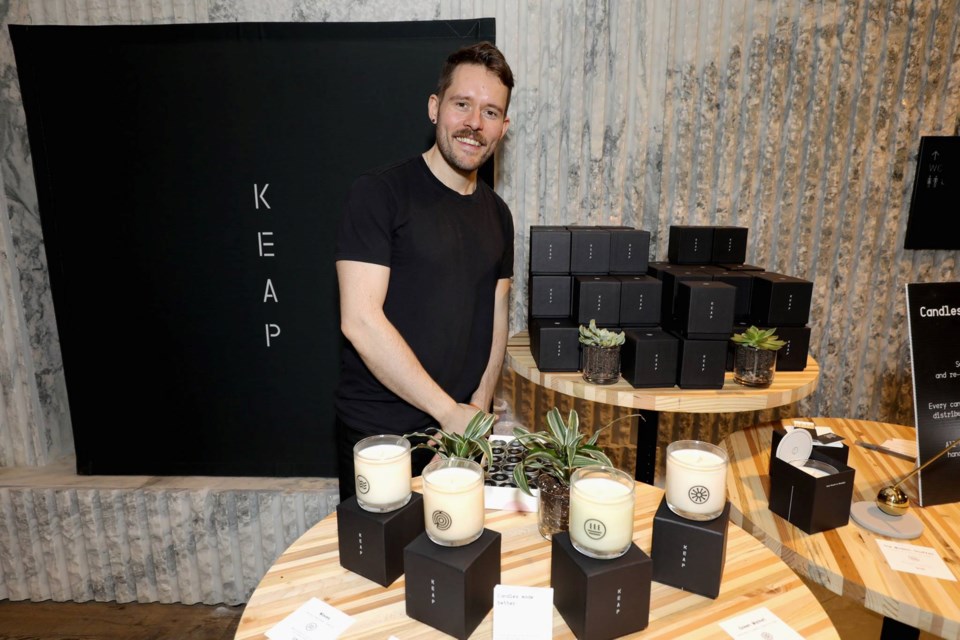Keap, sustainable candles made in Brooklyn by ex—Google employees Harry Doull and Stephen Tracy, was born out of both personal demand and curiosity, Metropolis Magazine discovered. Having burned many candles as roommates—on Keap Street in Brooklyn—they decided to investigate why simple good-smelling and great-looking candles, that didn't cost too much, were seemingly hard to come by.
"There are the ones that are cheap, toxic and fake smelling," said Keap co-founder Harry Doull, "or rip-offs sold in pretentious stores."
After doing some initial online research, Doull and Tracey started their journey into the world of candle-making by taking perfumery courses and touring candle manufacturers. Encountering an archaic industry that too often uses cheap, unsustainable materials such as paraffin, they decided to make better, purer candles. They launched Keap and created an affordable product made with sustainable ingredients such as coconut wax, hand-poured in recycled glass and distributed out of their Brooklyn studio.
"We were deeply passionate about how scented candles turned small urban spaces into homes," says Doull. "It's the most cost-effective way to decorate a room."

Photo credit: Keap
And "better" did not only refer to the quality of their product: in an effort to leave a sustainable impact, Doull and Tracey started Keap as a public benefit corporation, a for-profit company that is legally obligated to consider the impact of its decisions on society, not only shareholders.
Aside from simply making "better"candles, they teamed up with SolarAid, an organization that provides access to affordable, sustainable light to people who do not have access to electricity.
Many of the 1.3 billion people globally without access to electrical grids use kerosene-burning lamps for light - an inefficient, health-hazardous and dangerous practice. SolarAid distributes solar lamps to social entrepreneurs worldwide, who then sell the lamps in their communities. Local families buy them from these trusted members of their communities and stop depending on kerosene lamps.
Keap and SolarAid work to eradicate kerosene lamps by 2020. And just in the spirit of their mission - buy a candle, light a home - Keap donates $1 for each candle sold.


.png;w=120;h=114;mode=crop)

